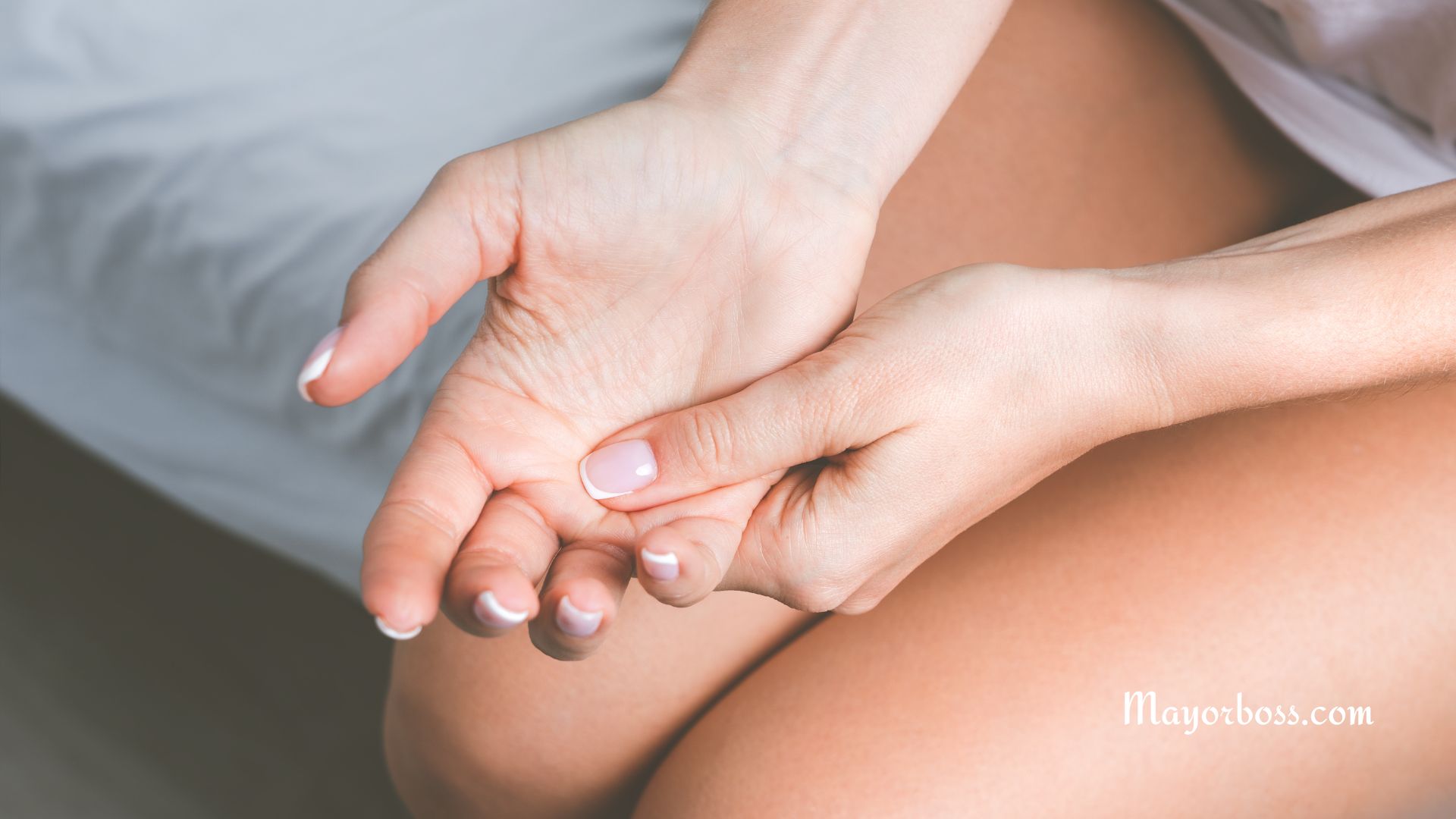What Can Cause Numbness in Hands While Sleeping?
Experiencing numbness in your hands while sleeping can be disconcerting. Often, you might wake up to a tingling, “pins and needles” sensation, or a lack of feeling in your hands. Almost a third of people wake up at least once a week with numbness or tingling in their arms, wrists, or hands. While this can be a common occurrence, understanding its causes is important for addressing any underlying issues. This article provides the potential reasons for waking up with numb hands and what you can do about it.

Common Causes of Hand Numbness During Sleep
- Sleep Position: The way you sleep can compress nerves in your hands. For instance, sleeping with your hand under your head can pressure the ulnar nerve, leading to numbness.
- Carpal Tunnel Syndrome: This condition occurs when the median nerve, which runs from your forearm into your hand, is compressed at the wrist. It’s often associated with repetitive hand motions.
- Peripheral Neuropathy: This involves damage to the nerves outside the brain and spinal cord. It can be due to various factors, including diabetes and vitamin deficiencies.
- Raynaud’s Phenomenon: This condition causes some areas of your body, like your fingers, to feel numb and cold in response to stress or cold temperatures.
- Cervical Spine Issues: Problems in your neck, such as herniated discs or arthritis, can affect the nerves that lead to your hands.
- Vitamin Deficiencies: Deficiencies in vitamins B12, B6, and E can lead to peripheral neuropathy, causing numbness in your hands.
- Alcohol and Toxin Exposure: Excessive alcohol consumption and exposure to certain toxins can lead to nerve damage, resulting in numbness.
- Rheumatoid Arthritis: This autoimmune disorder can cause inflammation in the joints, including those in the hands, leading to numbness.
- Other Medical Conditions: Diabetes, thyroid disorders, and autoimmune diseases can also contribute to numbness in the hands during sleep.
Managing and Preventing Numbness in Hands While Sleeping
- Adjust Your Sleep Position: Try to keep your arms relaxed and not under your pillow or head. Using a specially designed pillow can help maintain a proper sleeping posture.
- Wrist Splints: For carpal tunnel syndrome, wearing a wrist splint at night can help relieve pressure on the median nerve.
- Manage Underlying Conditions: If you have conditions like diabetes, ensure you’re managing them effectively with your healthcare provider’s guidance.
- Limit Repetitive Motions: If your job or hobbies involve repetitive hand movements, take regular breaks and use ergonomic tools when possible.
- Stay Warm: Keeping your hands warm, especially in colder environments, can help prevent symptoms of Raynaud’s phenomenon.
- Healthy Lifestyle: Maintain a balanced diet, stay hydrated, and avoid excessive alcohol consumption to support nerve health.
- Exercise Regularly: Regular exercise can enhance blood flow and reduce inflammation, benefiting nerve health.
- Consult a Healthcare Professional: If you frequently experience numbness or if it’s accompanied by pain or weakness, it’s important to consult a healthcare professional for a thorough evaluation.
Frequently Asked Questions
- Is hand numbness while sleeping always a sign of a serious condition? Not necessarily. Often, it’s due to benign causes like sleep position. However, persistent or severe symptoms should be evaluated by your doctor.
- Can exercises help with numbness in the hands? Yes, exercises that promote flexibility and strength in the hands and wrists can be beneficial, especially in conditions like carpal tunnel syndrome.
- Should I change my diet if I experience hand numbness? A well-balanced diet is crucial for overall nerve health. If you suspect a vitamin deficiency, consult with a healthcare provider for appropriate testing and dietary modifications.
Understanding the causes of hand numbness during sleep and taking appropriate steps can greatly alleviate discomfort and prevent potential complications. Remember, if you’re concerned about your symptoms, seeking medical advice is always the best course of action.
